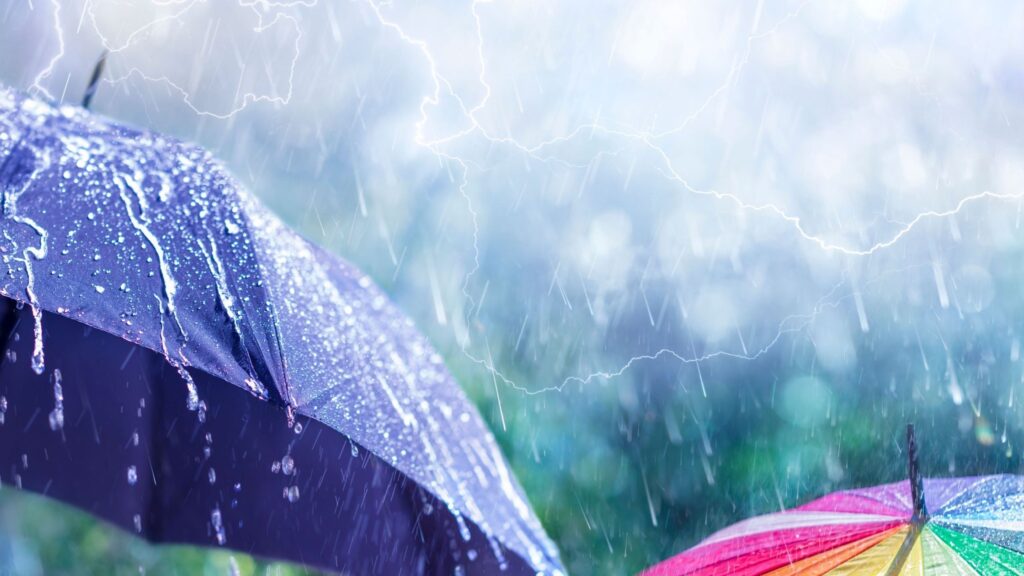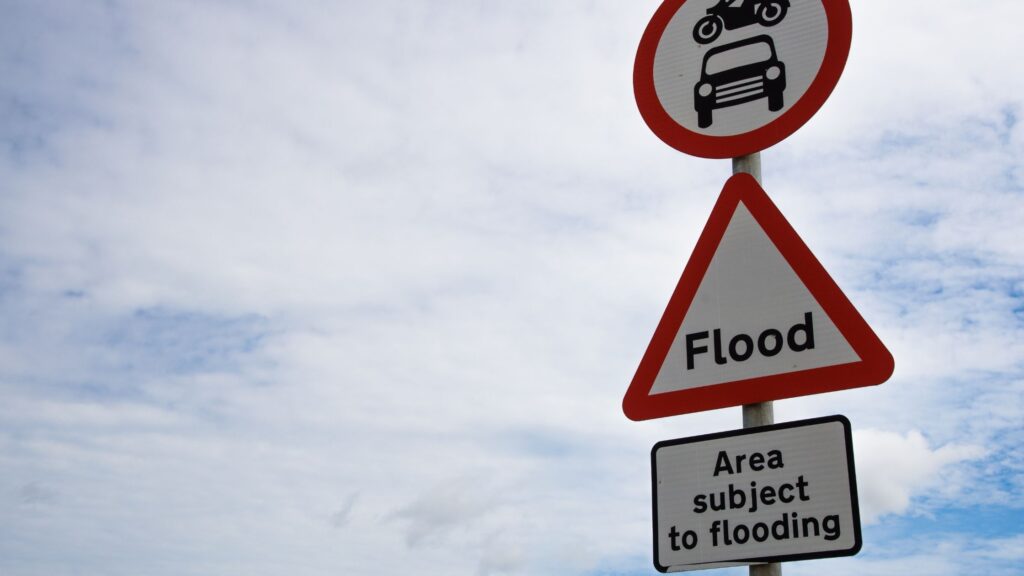
In Scotland, climate change isn’t just a global story, it’s cancelled conferences, overheated offices and storm-damaged stock.
We’ve been trying to find a builder to put a window in my son’s bedroom, fit new blinds to the office glass door and we’ve been fitting water butts everywhere we can in the garden. We’re coastal, and like all of our neighbours, have seen a small(ish) increase on our home insurance to reflect our proximity to the sea.
A house protocol has emerged in the last couple of years to ‘batten the hatches’ (must be delivered in comedy Dad’s Army voice) when a named storm is predicted, it involves locking windows and doors, laying down towels and tying down the table tennis table no one ever uses (lockdown purchase). And just like at home, your business needs its own ‘batten the hatches’ checklist.
All to deal with the changing weather.
The Extremes

Scotland is getting warmer and wetter. We’re already experiencing extreme weather events exacerbated by climate change and, according to Adaptation Scotland, due to global climate change, our weather will become more variable and unpredictable, with extreme weather events becoming more common, including heatwaves.
We’re lucky, we have the means to adapt and the changes we’re experiencing are not as extreme as those in the global south.

Back in 2016 I conducted research on the physical risks caused by climate change to the whisky industry for a masters. I knew all this then, the distillers I spoke to had seen it coming for a while and were well ahead of the game. Yet I still didn’t act when it would have made perfect sense to do so. I commissioned an office with lots of glass because I liked the way it looked.
In April, the Climate Change Committee published its latest report to Parliament. It found the UK’s preparations for climate change to be inadequate. Too few public and private adaptation measures have been implemented to protect business sites.
I’m not surprised. Our clients don’t talk about adaptation, they focus on trying to understand, measure, report on and manage their impacts like greenhouse gas emissions which is both laudable and understandable.
But we ignore adaptation at our peril. An awareness allows for early-stage intervention. If I had put a window in my son’s room when I was designing the extension the additional cost would have been minimal and he would be less grumpy in the morning, maybe.
And the good news is, it’s not complicated to start.
Getting started

Three simple steps can make a big difference:
- Identify your top three climate risks: For most Scottish SMEs this could be heat, flooding, or supply chain disruption.
- Put low-cost contingency plans in place: That could mean setting a maximum safe working temperature and introducing shaded rest areas in line with HSE guidance, installing property flood resilience measures like airbrick covers, or arranging backup suppliers for critical goods.
- Test them once a year: Just like a fire drill, so your team knows exactly what to do.
If you’re wondering where to start, Adaptation Scotland’s SME Resilience Checklist is a free, straightforward tool that helps you map out your risks and plan your response. It’s a great first step before investing time or money.
We’re talking more to our clients about adaptation. It doesn’t have to be a mood killer, it’s just a sensible addition to good risk and resilience business planning.
Read more about the CCC report here or skip straight to building your own plan with the Adaptation Scotland checklist. The storms won’t wait.

At Black Skies Blue, we can help you assess your climate risks, build a practical resilience plan, and put adaptation on your board agenda without the jargon.
For more information please contact Jayne Saywell, one of our Business Advisors. Her knowledge, experience and ideas can help support your journey to a greener, more resilient future


